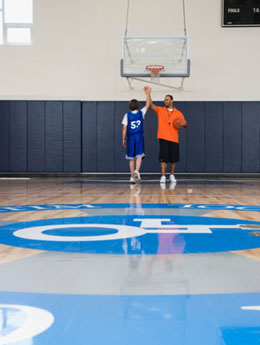Ball lodged in catchers equipment
Question
QUESTION: In a game tonight, the ball became lodged under the catchers mask or chest protector. I could not really tell for sure where it was. He was looking for the ball and finally (a second or two) looked up and then retrieved it from somewhere under his chin. Rule 5.09g states that the runners are entitled to one base if the ball remains out of play. I realize that this would be a judgement call, but what would be a reasonable amount of time required to deem the ball out of play. Had the ball rolled down into his shirt and the catcher is at home the runner would be awarded home when? If it takes six seconds to fish the ball out was it out of play? I looked at the tape of the game and do not feel that the ball WAS out of play but how much time is required to deem it out of play?
ANSWER: Scott,
If the ball is lodged in the player's gear, that to me is a little different then if the ball is lost in the player's gear. Lodged means that it takes some extra effort to pry it out of there. If the ball was just stuck under there and it was quickly retrieved, I would say the ball remains in play.
The nice thing about this judgement call is that the umpire can rule that the ball is out of play at any time. So if the fielder finds it quickly and throws it back into play, that can be a no call. If the fielder is looking for it, but can't find it and it is stuck in their equipment somewhere, then the umpire can rule out of play and send the runners back to where they would be discounting any movement made after the ball got stuck.
Hope this helps!
Brian
---------- FOLLOW-UP ----------
QUESTION: If it is ruled out of play, why should the umpire send the runners back anywhere. According to 5.09g they are to be awarded 1 base if the ball is ruled out of play.
Answer
Scott,
What I was trying to explain (I think I did it rather poorly) was that if the runners advanced during the time from when the ball went out of play until the umpire decided the ball was out of play, that advancement would not count. A very fast runner may be able to advance a base in that time. The base would be awarded to the runner based on where they were at when the ball went out of play, not based on where they were when the umpire ruled it out of play. That gives the umpire some time to determine if the ball was really out of play when a player is picking around in their equipment for the ball.
Kind of confusing and really wouldn't make a difference most of the time.
Sorry about that - hope this clears it up!
Brian
Obstruction vs. Interferance
Defensive Responsibilities


